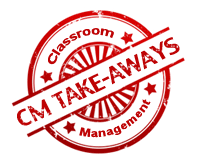
- ”Kids don’t care how much you know until they know how much you care.” Dr. Madeline Hunter
- Parenting affects behavior. However, we cannot use poor parenting as an excuse for not teaching.
- Say good-bye to classroom management approaches that make more work for you, the teacher.
A positive teacher-student relationship may be the most important contributor to the success of a student. Why? Because this increases how much a student enjoys both the teacher and the subject matter. What follows is a motivation to come to class more often, show better classroom behaviors, and to pay more attention in class.
All children deserve the very best education you can deliver. You can do a great deal to help each student feel like a valued class member. Students need to experience respect and unconditional acceptance from a teacher. As a result, they are more likely to be compliant, respectful, and open to learning. On the other hand, students who experience disrespect and negativity are more likely to exhibit the same disrespect and negativity. They will more likely act out and misbehave.
Don’t just assume students know how to behave—teach them!
In our seminar, teachers will learn how to “know” their students well and respond to them individually. Students in such a class feel seen, known, and valued – which improves the classroom culture and tone, and replenishes energy and time for intellectual work together. These students report that they feel a greater appreciation for one another in such an environment.
.
Our training helps teachers to improve student motivation for learning, their enjoyment of the course, and enhances the ability to receive to what is being taught. How? First, because of attending our seminar, teachers feel empowered to guide their students’ daily behaviors in a more positive direction. In turn, students learn how to show on a regular basis, behaviors that are more respectful, motivated, and responsible.

